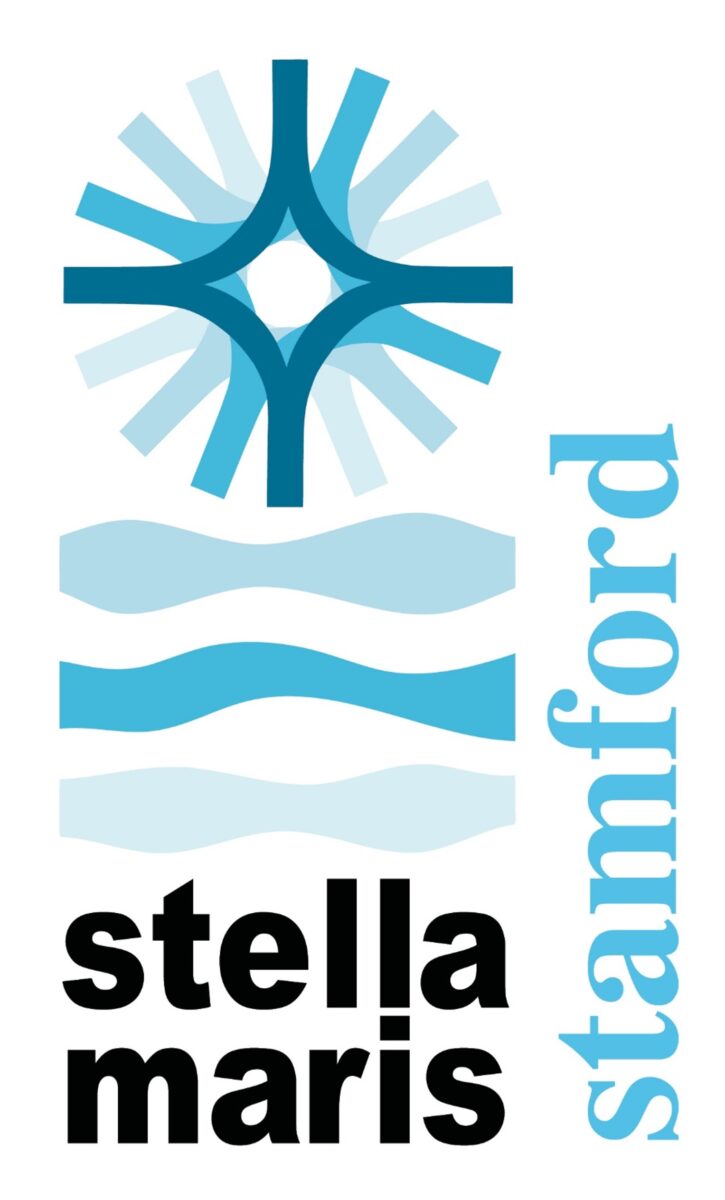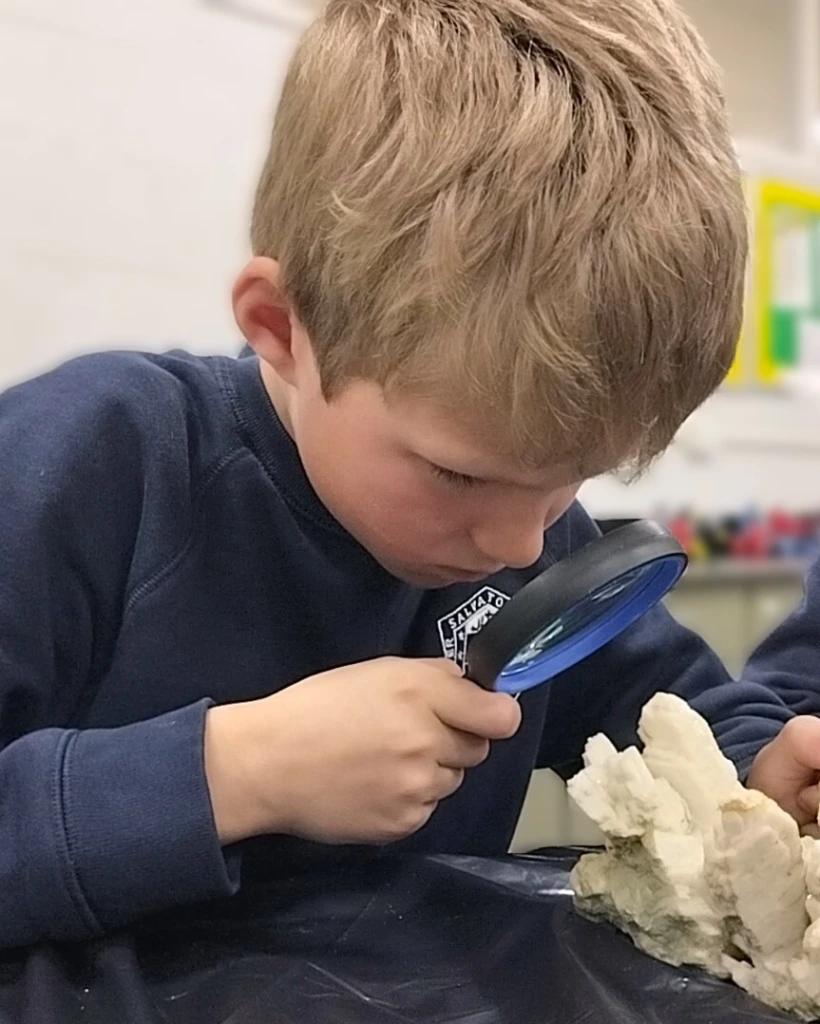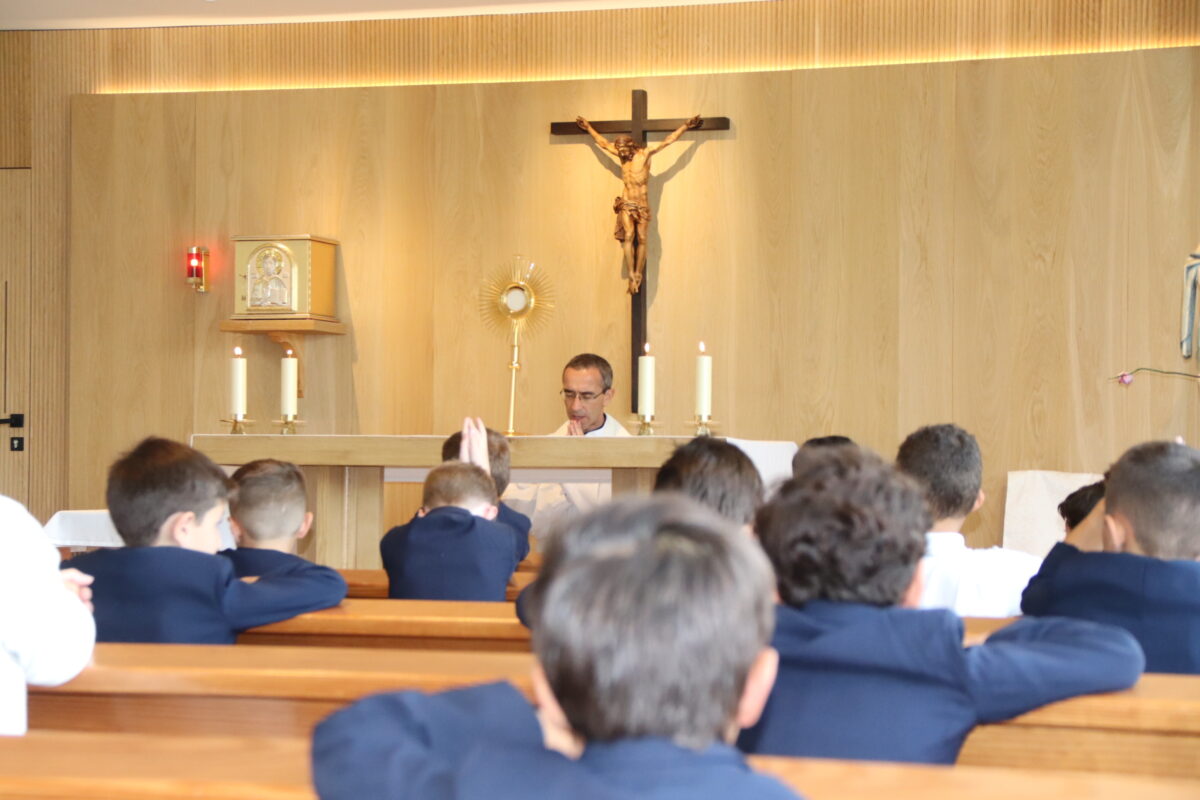
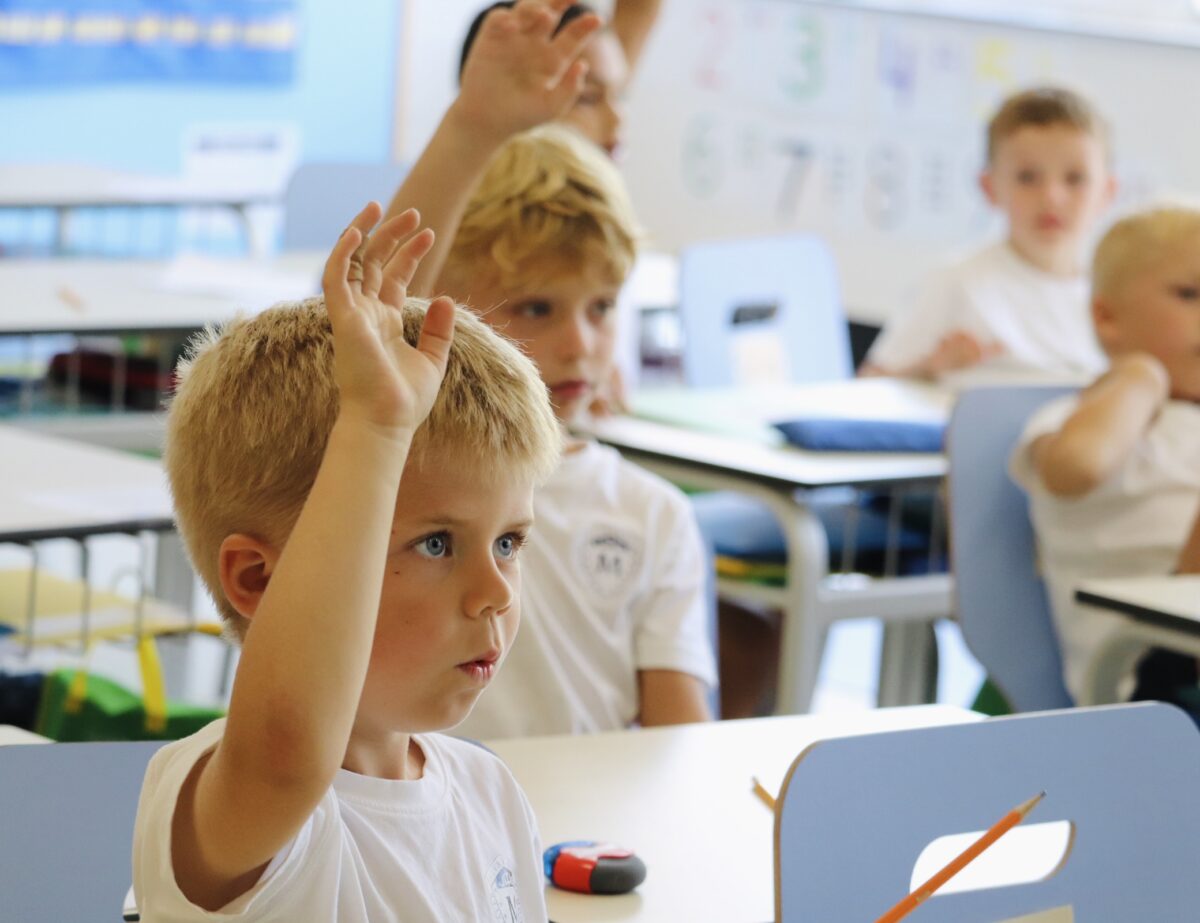
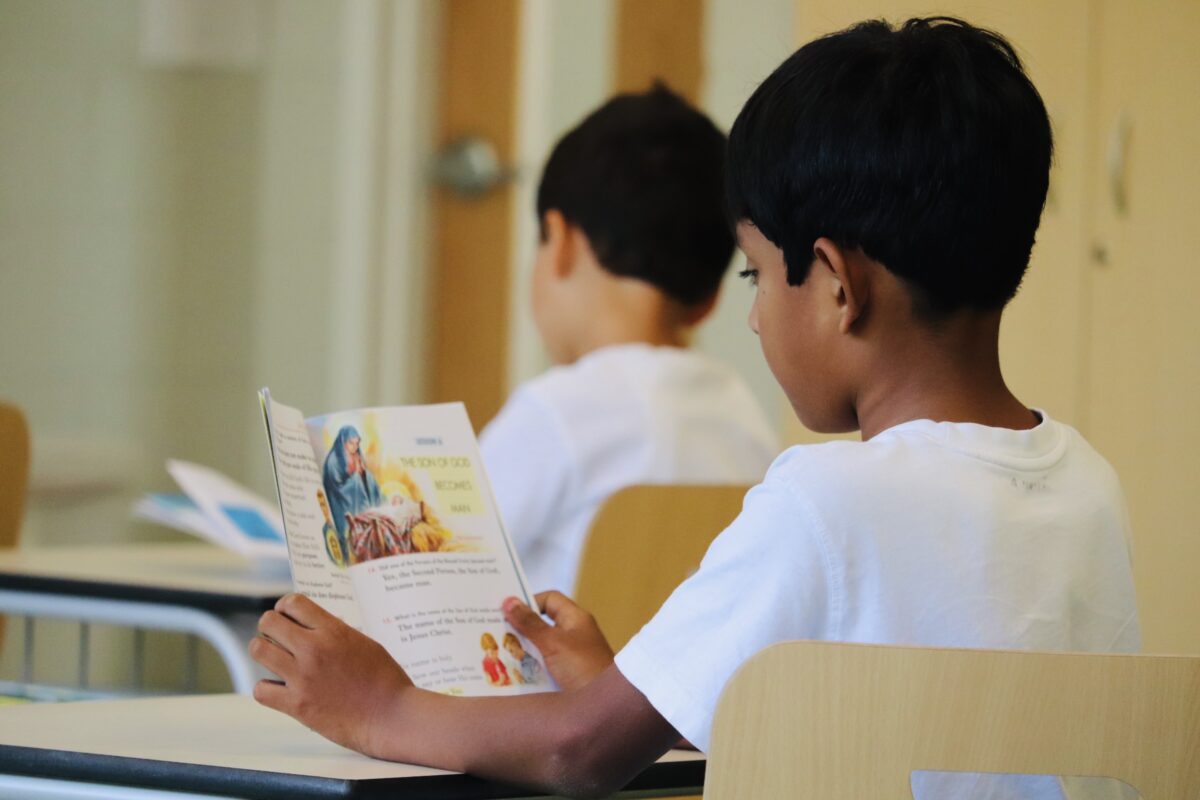
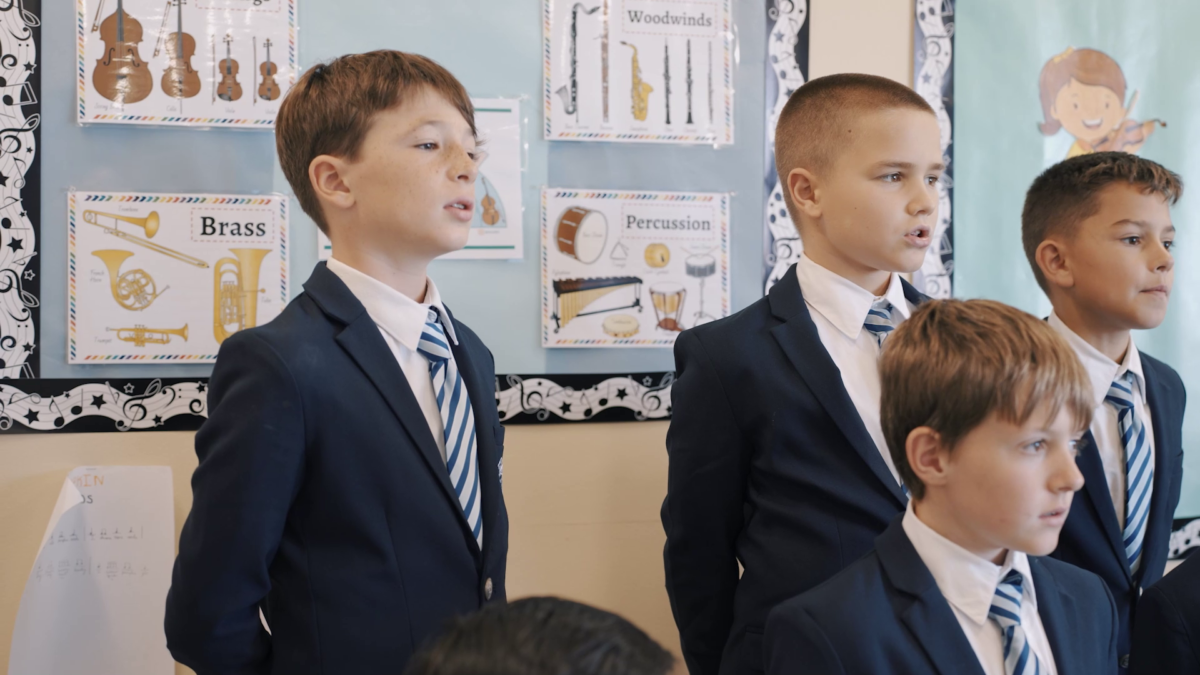
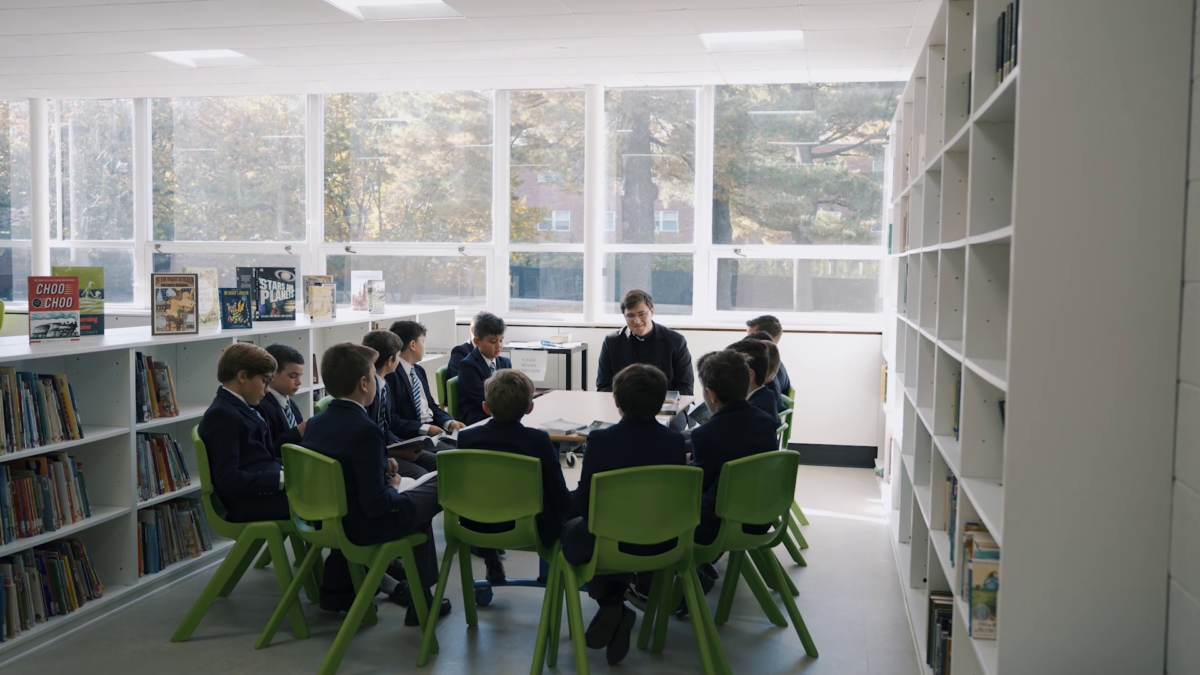

MISSION STATEMENT
In partnership with families, Stella Maris schools are dedicated to fostering the growth and flourishing of each student by cultivating virtues within the context of a lifelong friendship with Christ. Our educational approach emphasizes the holistic development of the person—academically, morally, and spiritually—so that each student may discover their unique purpose and live a life of meaning and service.
THE FOUNDATION OF OUR EDUCATIONAL VISION
At the heart of our educational philosophy is the belief that friendship with Christ transforms lives. It is through this profound relationship that students experience true freedom, the beauty of a life lived in accordance with God’s will, and the greatness that comes from living a life of virtue and purpose. We strive to guide each student towards this friendship, believing it to be the foundation for a fulfilling and meaningful life.
CORE BELIEFS
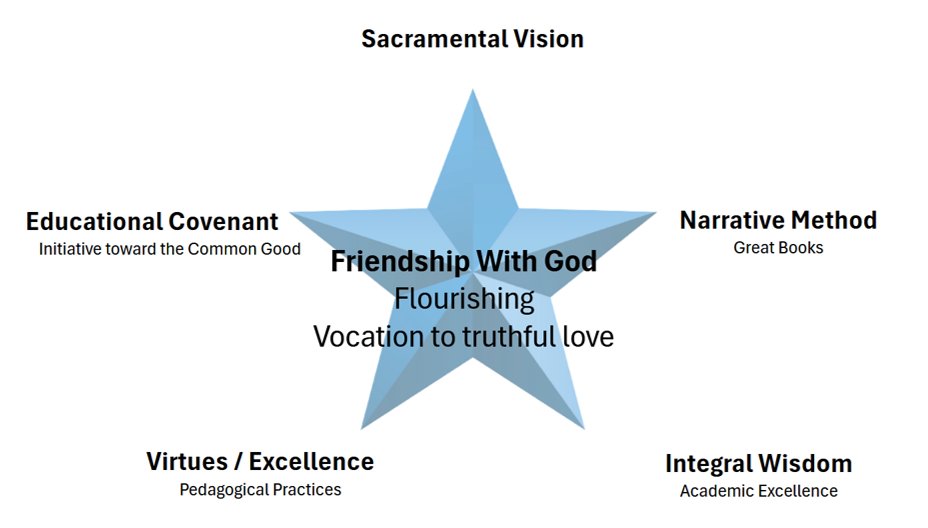
1. Education consists of helping the student flourish in each different stage of his life.
Each student is a unique and unrepeatable individual, endowed with distinct talents and a specific vocation. At Stella Maris, we believe that true education involves recognizing and nurturing this individuality, guiding each student to discover and develop their God-given gifts.
Flourishing goes beyond academic success. It is about the holistic integration of all the dimensions of the person—physical, spiritual, emotional, intellectual, and relational. By focusing on the whole person, we help students cultivate balance and harmony in their lives, empowering them to grow into their fullest potential.
The ultimate goal, or telos, of this educational journey is the blossoming of a complete, fulfilled life. Through our approach, we strive to help each student unveil the “light,” the unique brilliance that resides within them; the “genius,” their natural intellectual capacity; the “artist,” their creative expression; the “hero,” their ability to act courageously; and the “saint,” their call to holiness and virtue. By nurturing these qualities, we support the emergence of the exceptional individual that each student is meant to become.
2. Education requires an educational covenant between the child, his parents, the teachers and the consecrated.
Interpersonal relationships are an essential, though often indirect, aspect of a student’s formal education. At Stella Maris, we recognize that human beings are relational by nature, and the quality of these relationships significantly impacts a student’s personal growth. Developing healthy, meaningful relationships is not only a life skill but also a vital part of their journey toward becoming well-rounded individuals.
Parents hold the role of primary educators of their children, providing the foundational guidance and values that shape a child’s development. In this educational alliance, teachers and priests or religious serve as witnesses to a truth that transcends themselves. Through their example and instruction, they embody virtues, faith, and wisdom, pointing students toward a deeper understanding of the world and their place within it.
The educational alliance between parents, teachers, and the school seeks to educate the child within the context of their constitutive relationships—as a son or daughter, a sibling, a friend, and a member of a broader community. By nurturing these relationships, we aim to guide students toward the fullness of their vocation to love. This vocation may manifest in different ways: as a spouse, a parent, or a member of religious life. Our goal is to prepare students to embrace these roles with a heart open to love and service, in alignment with their unique calling.
3. Education in virtues through pedagogical practices is essential to shape the desires of the child.
Through age-appropriate pedagogical practices, students are guided to cultivate a genuine desire for what is good and true, and to actively put these values into practice in their daily lives. Our educational approach encourages students to not only recognize what is right but also to internalize and act upon these truths, fostering a deep, lived commitment to virtue.
Virtues are not acquired overnight; they are developed progressively through a thoughtfully designed curriculum that integrates both intellectual growth and moral formation. This journey is supported by rites of passage and promises that mark key stages in the student’s development, reinforcing their understanding of responsibility, integrity, and personal growth. These milestones serve as tangible moments where students can reflect on their progress and make renewed commitments to their own growth in virtue.
The path of growth at Stella Maris encompasses the cultivation of both intellectual and moral virtues. This integration ensures that academic excellence is not pursued in isolation, but rather alongside the formation of character. As students advance academically, they simultaneously develop virtues such as perseverance, humility, courage, and integrity, equipping them to face life’s challenges with both wisdom and moral strength.
4. The narrative method shapes the imagination of the student, opening him to a great and beautiful life.
The Narrative Method places the student at the center of their own educational journey, emphasizing the importance of their active role in shaping and developing their own life story. This approach demands the relational protagonism of the student, encouraging them to engage deeply with both the content of their learning and the relationships that form part of their growth. By taking ownership of their personal narrative, students become more aware of their unique identity and the direction of their lives.
Through stories and tales, students develop a sense of narrative intelligence, which helps them understand the unity of life—how individual events, choices, and experiences are interconnected to form a cohesive whole. This method teaches students to see their own lives as stories with meaning and purpose, helping them to make sense of challenges, achievements, and their evolving sense of self.
Furthermore, stories and tales provide students with an ideal of the good life by presenting models of excellence, virtue, and character that inspire their moral imagination. These narratives offer concrete examples of noble and virtuous living, which serve as guiding lights for students as they navigate their own moral and emotional development. By engaging with these stories, students learn to integrate their affectivity—their emotional responses and relationships—within a larger vision of what it means to live a good and fulfilling life.
5. Integral wisdom finds its keystone and foundation in the student’s relationship with Jesus Christ and his relationships with others.
In the subjects of science, math, and the humanities, students cultivate the ability to recognize the underlying unity, dynamic order, and inherent beauty of the world around them. These characteristics are understood as divine fingerprints, evidence of God’s harmonious creation. Each element of the universe reflects the love and intentionality with which God has woven together the fabric of creation, with humanity as His chief creation. This perspective encourages students to appreciate not only the intricacies of their studies but also the profound connection between all aspects of existence.
The disciplines of science, math, and humanities find their hermeneutic key in theology. Theology serves as the prism through which we interpret and understand all forms of knowledge, revealing deeper truths and insights about our world. By engaging with theological principles, students gain a more profound understanding of their subjects, which in turn illuminates the path to wisdom. This integration fosters a holistic education where faith and reason coexist, enriching the student’s intellectual and spiritual life.
Through a relationship of friendship with Christ, characterized by charity, a new way of seeing reality emerges—what can be termed as a sacramental vision. This vision allows students to perceive the sacred in the everyday and to recognize the divine presence in all creation. As this sacramental vision develops, so too does their vocation to love, maturing into a deeper commitment to serving others and embracing the call to contribute positively to the world. In this way, students are not only equipped with academic knowledge but also prepared to live out their faith in a way that transforms their understanding of reality and their interactions with those around them.
